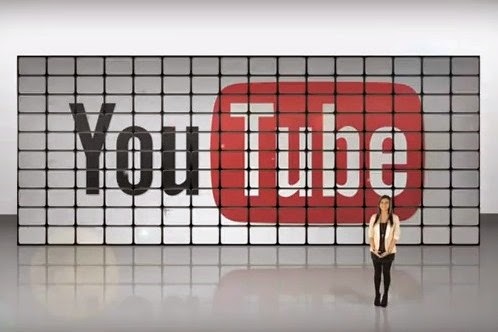I finished college in the typical four years, and the six and a half
years it took to finish graduate school may have been average as well
for doctoral programs. I love school, and
learning in general,
and if I had stopped learning altogether, I'd be over 20 years behind in
grasping things. After all, it was 1993 when I graduated with my PhD.
I've attended several professional conferences and training programs
over that time span, but otherwise I haven't been back to school
since.
I am grateful for my keen mind and abiding
curiosity, however. So in fact I've continued to learn about things,
and with the advent of Theory of Algorithms and The Core Algorithm, I've even accelerated the pace and sharpened the process by which I learn, 99% of which is low or no cost and certainly convenient. This week I look at
online forums, and next week it's
in-person activities I talk about, as far as learning goes.
YouTube is a godsend. A few decades ago, cable TV expanded the number of channels we watched into the hundreds, and for a fee, we had the privilege of watching programs without commercial interruption. For films, that fee was well worth it. But cable TV is no match at all the breadth and depth of YouTube. YouTube brought not only TV consumption, but also TV production and distribution to
you and me. We can create and promote our own stuff, along with watching that of others.
I'm writing a book on innovation, for example, and this requires quite a lot of research. My thesis hinge on our need to innovate on innovation, as every consultant, or would-be consultant it seems, has such ready advice to dispense that innovation slid into conventionality and mediocrity. When anything becomes a buzzword, it rapidly loses its meaning and import. My aim is to advance our understanding and to improve our efforts to innovate.
Enter: YouTube
We begin of course with the end in mind. If you have a specific subject in mind, type that into the search box. If you simply want to explore and enjoy, browse YouTube recommendations right on its home page. A section of my book is on the history of innovation, and after a handful of search queries, I stumbled on the documentary
Inventions that Shook the World. You can buy the DVD set on
Amazon for as little as $30.51 or you can watch it all for free on this
playlist.
Mind you, I don't find everything I want, and sometimes I run into poor quality programs. As part of that search on the history of innovation, for instance, I found
Inventions that Changed the World. But after watching the first episode, I was turned off. I may decide to watch the other episodes, and may be they are of better quality. So while I've set this program aside, I have every liberty to come back to it.
The second step is
walk backwards to map the pathways, that is, from where you want to be to where you are now. In essence, though, this step is about creating the right road map to truly accomplish or reach your end. Once you're in the process, though, you're not just navigating (walking) the roads you've mapped, but you're also altering and adjusting the road map accordingly. In this respect, I actually slid out YouTube, after being turned off by
Inventions that Changed the World, and searched, and found, a terrific paper on the history of innovation from Google Scholar. Sliding in and out of YouTube, and other learning forums, is a very dynamic, fluid process for me.
Within YouTube, it is so easy to subscribe to channels of interest that it makes TV quite a fossilized relic. Forbes, Bloomberg and Wall Street Journal are publications for finding business and leadership in general, and innovation in particular, while consultancies like McKinsey and Booz and universities like Harvard and Stanford have all sorts of positively intriguing, relevant videos. When you search via subject, you may find channels of interest to you, or you can certainly search for specific channels directly, such as "CNN channel."
Finally, The Core Algorithm puts
walk the pathways squarely in its easy-as-pie, ABC-123 process. The nuts-and-bolts of learning for me on YouTube is to watch actively and to reflect continuously. I often stop the video to replay a section, or even just a set of remarks, to grasp it better. I also pause the video to take notes in my journal, as it's supremely easy to toggle off from one tab to another on my laptop.
Back in my university days, I took to audio-recording some lectures. But I soon found out that listening to lectures again was too time-consuming, so it prompted me to listen more actively and take notes more carefully. But with YouTube I have the luxury to stop and replay, reflect and wonder, and write things down. If a figure, book or event is mentioned in the video, I can even do a quick search on it and explore a particular reference.
As you see, it's a dynamic, convenient process for learning. But as they say, you can bring a horse to water, but you can't make it drink. So at the end of the day, The Core Algorithm is about actually drinking the water, replenishing yourself, and relishing the cool drink.


















